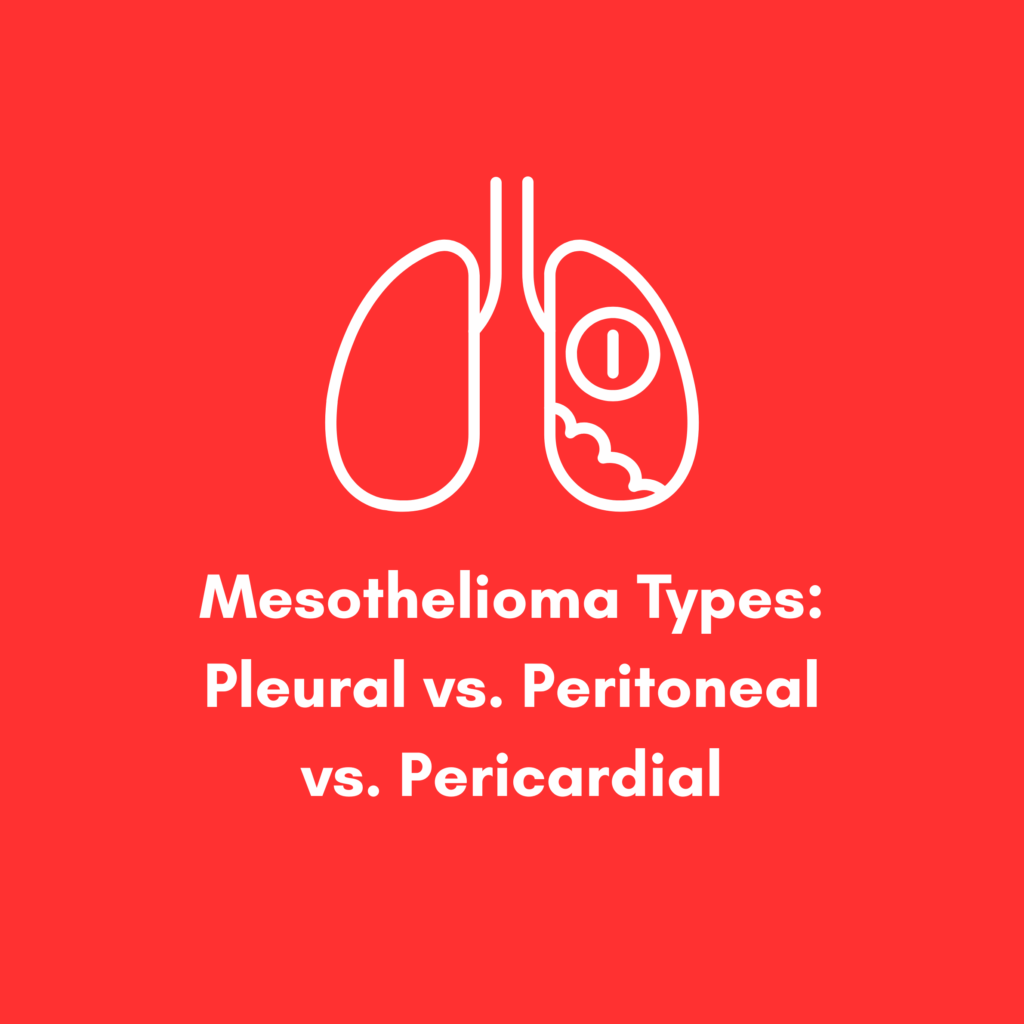While many people think of mesothelioma as a lung disease, it can actually form in different parts of the body. The three main types are pleural mesothelioma, peritoneal mesothelioma, and pericardial mesothelioma.
Each type has unique symptoms, treatment options, and outcomes. Understanding the differences can help patients and families recognize early warning signs, ask the right questions, and make informed decisions about care.
Pleural mesothelioma is the most common type, making up about 75–80% of all cases. It develops in the lining of the lungs (the pleura) after asbestos fibers are inhaled.
Because its symptoms resemble conditions like pneumonia or COPD, pleural mesothelioma is often misdiagnosed in the early stages.
Peritoneal mesothelioma affects the lining of the abdomen (peritoneum) and represents about 10–20% of mesothelioma cases.
Compared to pleural mesothelioma, peritoneal mesothelioma sometimes responds more effectively to treatment, especially when HIPEC is available.
Pericardial mesothelioma is the rarest form, accounting for just 1–2% of all cases. It forms in the lining around the heart (pericardium) when asbestos fibers become lodged there.
Because it is so rare, pericardial mesothelioma is difficult to diagnose and treat. Surgery may be performed to reduce fluid buildup, and in some cases chemotherapy or radiation may be used. However, treatment choices are limited compared to other types.
The type of mesothelioma a patient develops depends on where asbestos fibers lodge in the body.
These differences are important because treatment options vary by type. Pleural mesothelioma may be treated with surgery, chemotherapy, and immunotherapy. Peritoneal mesothelioma patients may qualify for HIPEC, which has improved outcomes for many. Pericardial mesothelioma, while very rare, often has fewer available treatments due to its complexity.
Understanding whether mesothelioma is pleural, peritoneal, or pericardial is crucial because:
Since asbestos exposure can take 20–60 years to cause symptoms, people with known exposure should monitor their health closely and seek medical attention for any new chest, abdominal, or breathing issues.
If you or a loved one has a history of asbestos exposure and is experiencing related symptoms, it’s important to seek medical advice immediately. Reach out today to take the first step toward justice and compensation.
Call (800) 505-6000 or fill out our contact form to speak with an experienced Pennsylvania mesothelioma legal advocate.
Sources:
https://archive.cdc.gov/www_cdc_gov/niosh/topics/asbestos/default.html
